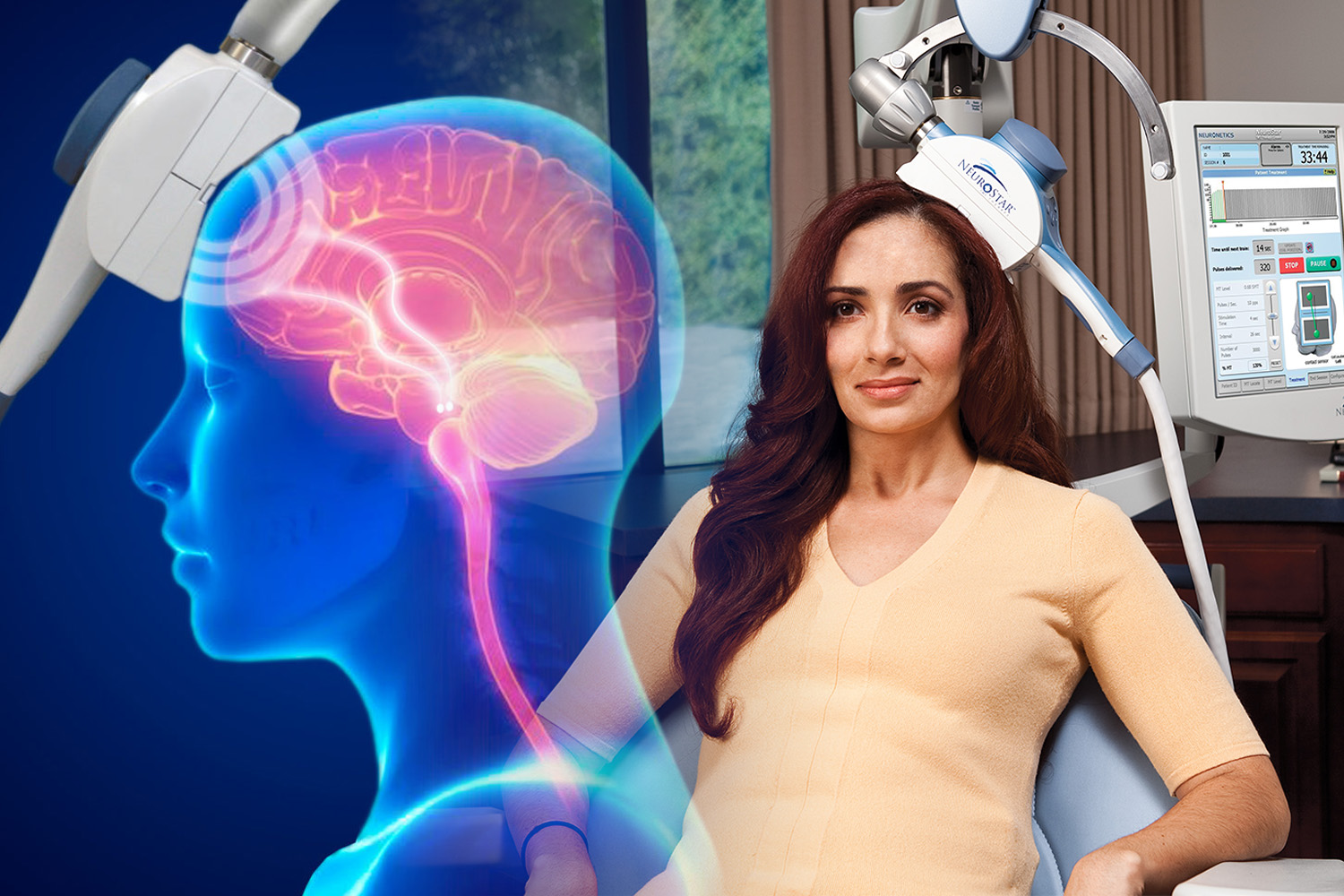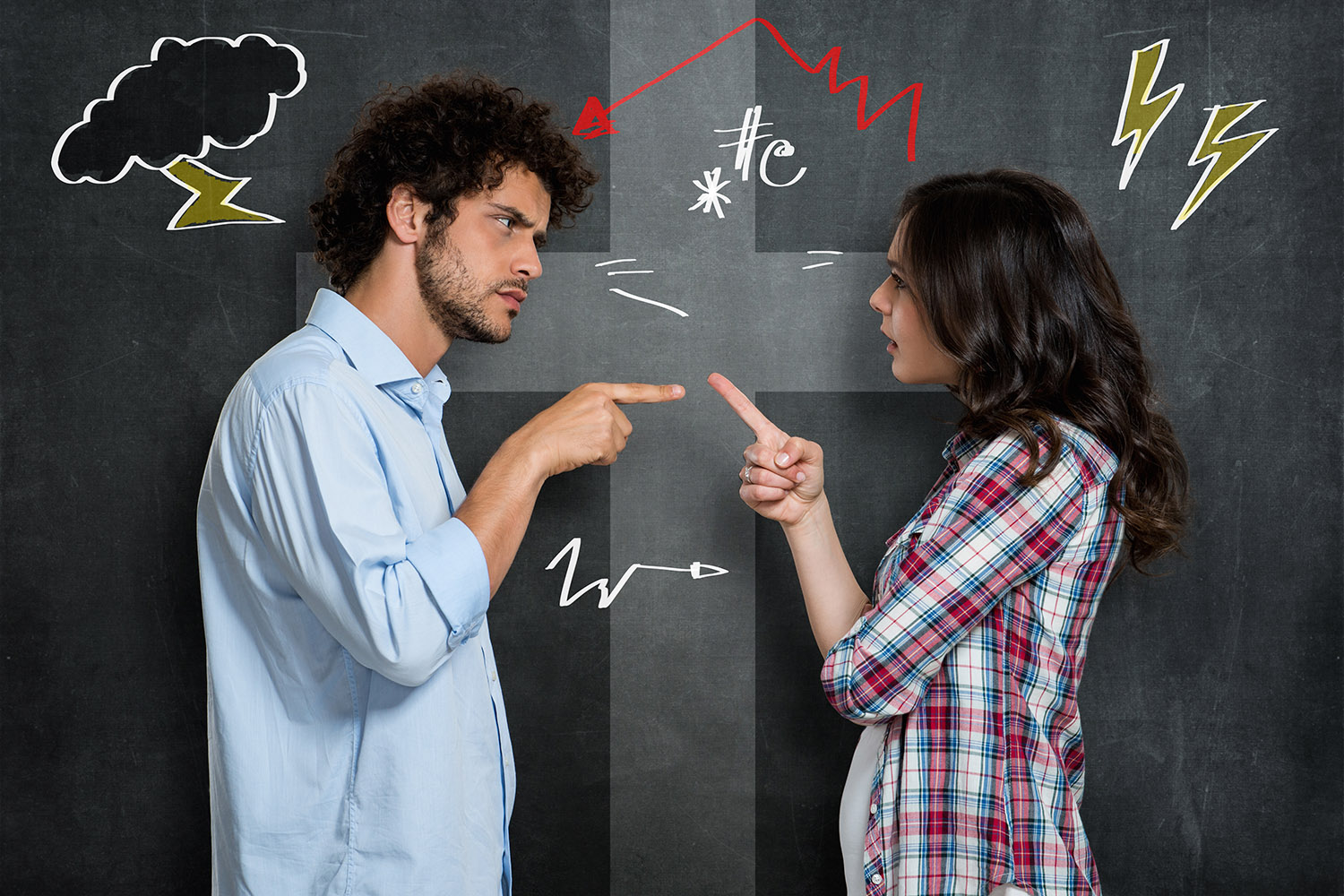Major depression is a debilitating brain-body illness that impairs function and is one of the highest causes of disability worldwide. When a person is in a state of depression, the brain’s normal neural network and circuits do not function in the normal way and the various domains of life are negatively affected (impaired concentration, sleep, appetite, energy, motivation, ability to experience joy, thinking patterns, etc.).
The prefrontal cortex—the part of the brain behind the forehead—is where we think, reason, plan, strategize, prioritize, pay attention, and modulate mood. When people are depressed, the prefrontal cortex is underactive, so they find it hard to think clearly, focus, learn, and problem-solve, and they get overwhelmed with life easily.
The part of the brain just behind the prefrontal cortex, the anterior cingulate cortex (ACC), is where we make choices and experience our sense of compassion and empathy. During depression, the ACC is also underactive, so people struggle to make decisions and to feel socially connected to others.
On the other hand, the amygdala, the part of the brain where we experience fear, anxiety, and alarm, is overactive during depression, so sufferers will often feel worried, dread, uneasiness, and anxiety even without specific threats or problems, or they will markedly exaggerate the level of real-world issues and, thus, worry and ruminate rather than problem-solve effectively.
It probably doesn’t surprise you that the most common treatment for depression is anti-depressant medication. However, while there are many people for whom medications have been lifesaving, it is also true that there are millions for whom medications are either ineffective or cause intolerable side effects. There are also those who just don’t want medication in their bodies.
Fortunately, there is an alternative, drug-free treatment for depression today called Transcranial Magnetic Stimulation (TMS).
How it Works
TMS uses a strong electromagnet to activate the underactive brain circuits in order to move the brain back toward a non-depressed level of functioning.
During a TMS treatment, the electromagnet is placed against the scalp adjacent to the prefrontal cortex; then, pulses of magnetic energy move across the cranium into the brain. These pulses cause the neurons in the prefrontal cortex to fire (depolarize) and, because they are connected to neurons in the ACC, they, in turn, cause the neurons of the ACC to fire.
Then, when the ACC activates, it sends a calming signal to the amygdala. In other words, TMS treatments move the brain’s neural circuits back toward their non-depressed levels of functioning.
Various data have demonstrated that of the patients who have been unable to experience relief from depression through medications, 68 percent achieve remission of their depression symptoms through TMS treatment.
What to Expect
During a treatment, a patient will typically receive three thousand pulses over a 20- to 30-minute period. The patient is awake the entire time, and there are no IVs or medications. As soon as the treatment is over, the patient is free to leave and go about their routine business without any restrictions.
Most people will require 30 to 36 TMS treatments to get them out of a state of depression. Once they are out of depression, their wellness can often be maintained with a single treatment once a month.
For the first couple of sessions, the most common side effect is transient discomfort on the scalp where the magnetic energy crosses the cranium. Most people find this becomes easily tolerated within a few treatments.
The only absolute contraindication to receiving this treatment is having magnetizable metal inside one’s head. However, if you have been cleared to get an MRI, you will most likely be cleared for TMS.
Many insurance plans, including Medicare, now cover TMS treatments, but you will need to check with your particular carrier. Cash price varies depending on your region and provider but typically ranges from approximately $300 to $600 per treatment.
There are a variety of machines cleared by the FDA that physicians can use to provide this treatment. I prefer NeuroStar’s system to others. They have a strong scientific support team that helps providers find relevant and recent research. Their device also allows for more focused and nuanced treatment, and it is currently the only one cleared to treat depressive adolescents ages 15 and older. (Their device is also approved for the treatment of obsessive-compulsive disorder.) You can find a list of NeuroStar TMS providers at NeuroStar Providers.
Finally, TMS treatments can be administered by any doctor who has been trained to do the procedure. However, I recommend seeking a psychiatrist rather than a non-psychiatrist, as a psychiatrist will be able to better address other factors that are contributing to depression and can generally offer a more holistic approach to resolving the issue.
Depression is a debilitating brain-body illness that is treatable. If you or someone you know is struggling with depression, please seek professional help. If you have sought help and have determined that medications are not right for you, consider TMS as a possible solution. And if you are seeking holistic Christian residential treatment, consider Honey Lake Clinic.
See these blogs for more information:
- Hope and Healing for Those Struggling With Anxiety.
- The Difference Between Clinical and Situational Depression.
- Drug-Free Treatments for Depression.











 using your credit or debit card (no PayPal account needed, unless you want to set up a monthly, recurring payment).
using your credit or debit card (no PayPal account needed, unless you want to set up a monthly, recurring payment). instead?
instead?